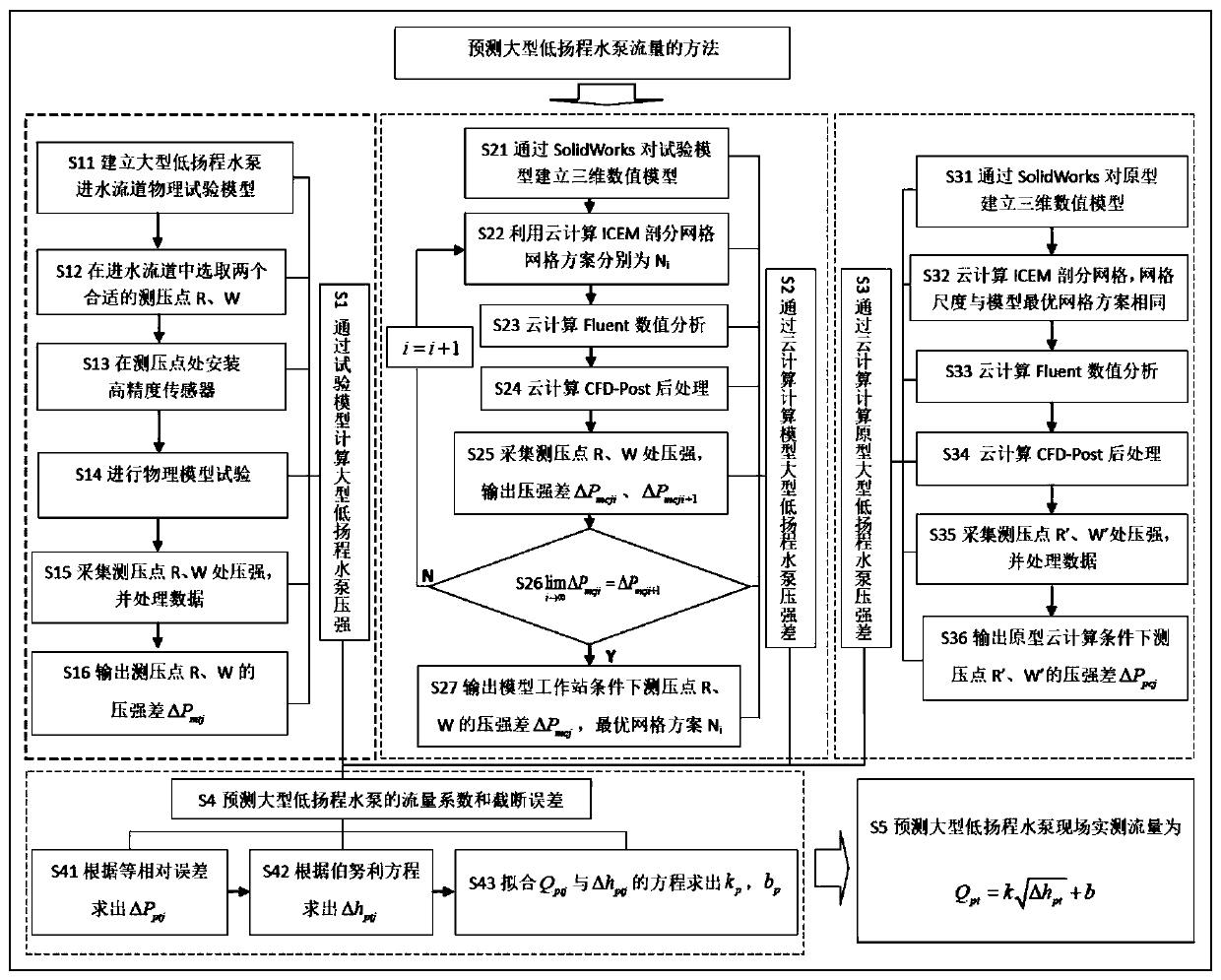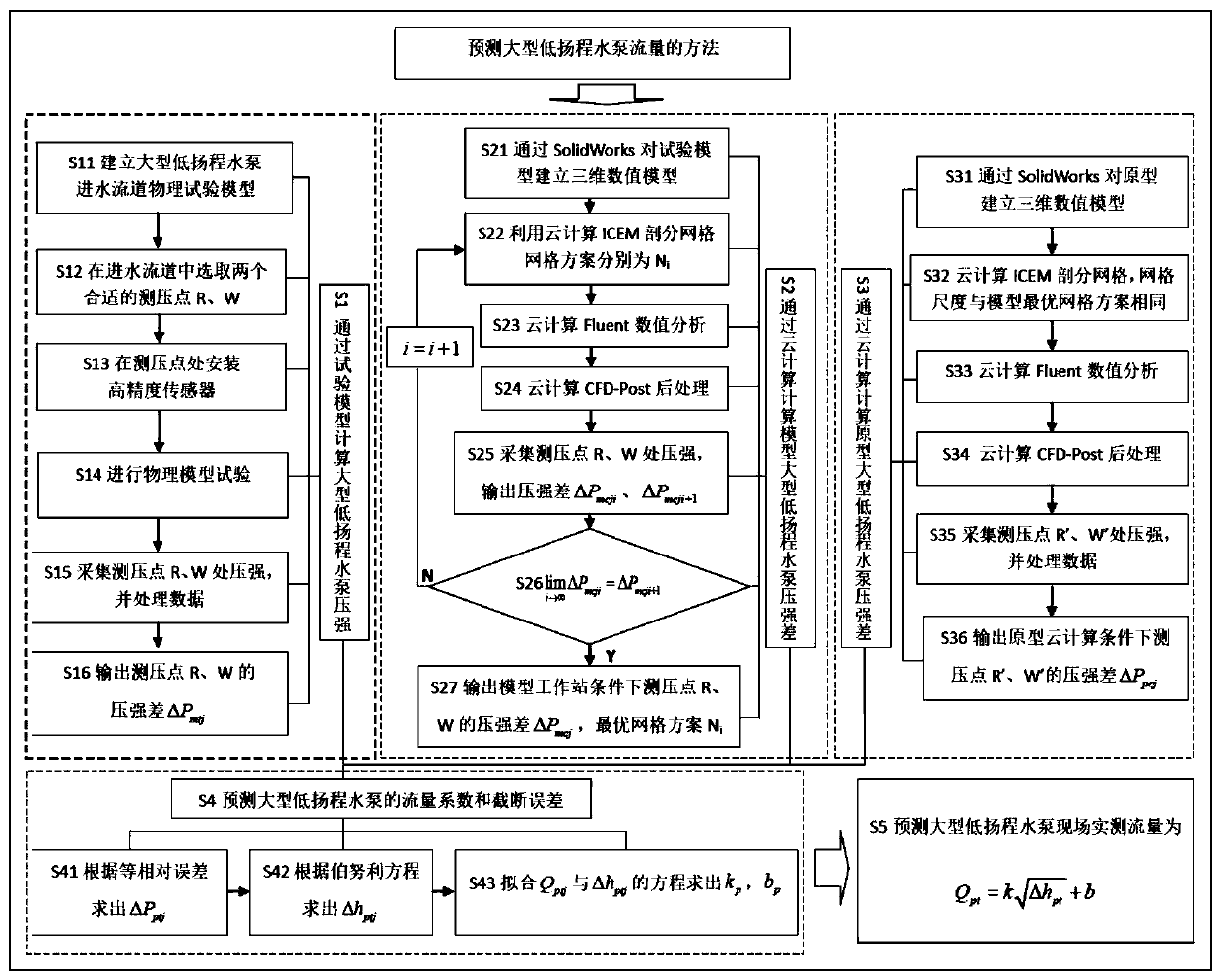A Method of Forecasting the Flow Rate of Large-Scale Low-Head Pumps
A technology of pump flow and low lift, applied in instruments, geometric CAD, calculation, etc., can solve the problems of measurement accuracy or high cost, high measurement accuracy, limited wide application, etc.
- Summary
- Abstract
- Description
- Claims
- Application Information
AI Technical Summary
Problems solved by technology
Method used
Image
Examples
Embodiment Construction
[0041] The present invention will be described in further detail below in conjunction with the accompanying drawings and specific embodiments.
[0042] Such as figure 1 Shown is a flow chart of the method for predicting the flow rate of a large-scale low-lift water pump of the present invention. The method for predicting the flow rate of a large-scale low-lift water pump in this embodiment first establishes a physical test model of a large-scale low-lift water pump inlet flow channel, selects two suitable pressure measurement points in the water inlet flow channel, and installs high-precision sensors at the two pressure measurement points. , collect the pressures of the two pressure measuring points in the physical model test under different flow conditions, and obtain the pressure difference of each flow rate of the two pressure measuring points under the physical model test conditions; then use the three-dimensional modeling software SolidWorks to build a model of large-scal...
PUM
 Login to View More
Login to View More Abstract
Description
Claims
Application Information
 Login to View More
Login to View More - R&D
- Intellectual Property
- Life Sciences
- Materials
- Tech Scout
- Unparalleled Data Quality
- Higher Quality Content
- 60% Fewer Hallucinations
Browse by: Latest US Patents, China's latest patents, Technical Efficacy Thesaurus, Application Domain, Technology Topic, Popular Technical Reports.
© 2025 PatSnap. All rights reserved.Legal|Privacy policy|Modern Slavery Act Transparency Statement|Sitemap|About US| Contact US: help@patsnap.com


